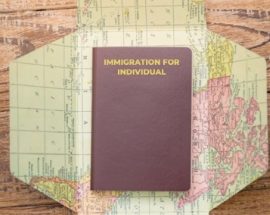Services

Business Immigration Visas:
Business Immigration Visas:
Start up visa:
The Start-up visa category is for early-stage but high potential entrepreneurs who are launching their business in the UK for the first time. It’s an attractive option because applicants do not need to invest any funds in their business at this stage. However, they need to have an “innovative, viable and scalable” business idea, assessed by an endorsing body.
The endorsing body must confirm that they have assessed the business on the following criteria:
Innovation: The applicant must have a genuine, original business plan that fulfils new or existing market needs and/or creates a competitive advantage.
Viability: The startup has, or is actively developing, the required skills, knowledge, experience and market awareness to run the business in a successful manner.
Scalability: The applicant must show evidence of structured planning and potential for job creation and growth into national markets.
The applicant needs to score 70 points, obtained thus:
Business is innovative, viable and scalable (25 points)
The applicant has not previously established a business in the UK (25 points)
English language at level B2 (10 points)
Financial requirement (10 points)
Applicants can stay for 2 years if they have come to the UK on a Start-up visa or have switched to the Start-up visa from another visa while in the UK.
The visa doesn’t lead to settlement but the applicant can progress to the innovator category.
Innovator visa:
The UK Innovator Visa is a visa category for more experienced business people looking to set up an innovative business in the UK and with the ability to invest a minimum of £50,00. The innovator will also need support from an endorsing body.
The criteria for innovators are tougher than those for a start-up. The immigration rules specify the following to be eligible for the Innovator visa:
Innovation: The applicant has a genuine, original business plan that meets new or existing market needs and/or creates a competitive advantage.
Viability – The applicant must demonstrate necessary skills, knowledge and experience, plus market awareness, to run the business competently.
Scalability – Evidence of structured planning and the potential for job creation and growth into national and international markets.
Sponsor Licence Application
With ever-changing visa and immigration policies, it is becoming more challenging to employ foreign migrant employees. If a UK employer wishes to employ a skilled foreign national, they have to apply for a sponsor licence. The sponsor licence is granted by UK Visas and Immigration (UKVI), using a relatively new points-based system.
Beginning January 1, 2021, sponsors also need a licence to employ EEA and Swiss citizens coming to the UK.
If the sponsor licence application is successful, UKVI will grant a licence rating to the employer and also list them in the official register of sponsors. The sponsor licence has a validity of four years if the compliance terms are met.
Yet, the sponsor licence in itself is no guarantee for the prospective employee to be permitted an entry into the UK. Once a sponsor licence application has been successful, the employer can then issue Certificates of Sponsorship which an employee will have to include with the application.
UKVI also audits the compliance of sponsors for some categories and it is important to comply with the regulations and sponsorship duties.
Applying for a sponsor licence therefore is a complex process. UKVI insists on applications being accompanied with highly specific evidence and documentation. Typically, employers use the services of immigration experts such as West End Consultants to help them through the process. We can provide the professional expertise to make sure this happens the first time, speeding things up and saving you money.
If you’re considering employing a foreign national – whether they already work for you in some capacity, or are being newly hired to fill a position – we can help with the applications for your company and for the employee.
We have a team of experts with experience of working on sponsor applications. Contact us today on 020 3713 7052 and we’ll be happy to help ensure a successful application.
West End About Us
About Us
At West End, we strive to rise above and beyond our clients’ expectations in everything we do. We are a leading immigration consultancy firm and specialise in bespoke immigration and visa support for businesses and individuals.
With an experience of over 10 years, we have expertise in all areas of UK immigration and nationality law. Our advice is practical, effective and affordable and works towards the best interest of each client.
Our offices are in Harrow, London and you can easily access them using the nearest Tube station, Harrow on the Hill. We also provide in-person consultation for clients in locations across London, where necessary.
West End Consultants is regulated by the OSIC (Office of Immigration Service Commissioner), and our team of experts are ready and eager to help. Whether you’re a business, organisation or individual, we’ll deliver the service you need.
Why Choose Us?
The current immigration landscape is challenging and complicated. Often, there are misleading and contradictory opinions for the same visa or immigration query. As an OISC accredited consultancy, we can help you navigate the complex immigration scenarios easily and offer the best advice and help. Our excellent track-record, impeccable reputation and client testimonials are proof that when it comes to immigration law, West End has your best interests at heart.

Personal Immigration: Talent and Work Visas
Personal Immigration: Talent and Work Visas
Tier 1 Exceptional Talent Visa now known as Global Talent Visa
Effective from February 20, 2020, the Tier 1 Exceptional Talent Visa has been rebranded as the Global Talent Visa. This enables more foreign national workers to be eligible for the program.
The program is intended for individuals who are leaders in their chosen fields, at the very highest level of work or knowledge. It includes categories like science, engineering, digital technology and arts and culture.
Applications who have achieved excellence in these areas will be able to enter to work in the UK on a path to permanent residence.
How to apply for a Global Talent Visa for the UK?
Before you apply for a Global Talent Vias, you need to apply for endorsement from an organization that is recognized as an expert in your domain.
Once you have an endorsement, you can submit your application on the Visas and immigration website of the UK Home Office and register. You will also need to submit a set of required documents and pay endorsement fees.
Based on your chosen field of expertise, the UK Home Office will forward your endorsement application to an endorsement body for review.
The endorsement process time can vary from one to eight weeks depending on the organization that is reviewing your application.
Once you have received an endorsement, you can apply for a UK Visa using the endorsement letter and other relevant supporting documents.
If you already have a Tier 1 (Exceptional Talent) visa, you can still apply:
To settle in the UK or ILR
For family members to join you
However, to extend your visa, you must apply for a Global talent Visa.
Our team has detailed experience of dealing with Tier 1 (Exceptional Talent) visa applications. Call us now on 020 3713 7052 to speak to one of our expert advisors.
Return of the 2-year post-study work visa
Graduate Immigration Route
Starting summer 2021, international students who have successfully completed an undergraduate or master’s degree will be able to benefit from two years’ work experience in the UK upon graduation, through the new Graduate Route. Students who have completed their PhD will be able to stay for three years.
Who might be able to apply
From summer of 2021, the Graduate Immigration Route will be available to international students who have completed a degree at undergraduate level or above at a provider with a track record of compliance and those who have a valid Tier 4 visa at the time of application.
This route allows successful applicants to stay and work, or look for work, in the UK at any skill level for a maximum period of two years. They can switch into skilled work once they have found a suitable job.
Any eligible student graduating in the summer of 2021 or after will be able to apply for the route. This also includes students who have already started their courses.
The Health and Care Worker visa enables medical professionals to come to or stay in the UK for an eligible job with the NHS, an NHS supplier or in adult care.
Eligibility
Your job
To be eligible for Health and Care Worker visa, you need to be:
A qualified doctor, nurse, health professional or adult social care professional
Able to work in an eligible health or social care job
An employee of a UK employer approved by the Home Office
Able to produce a ‘certificate of sponsorship’ from your employer with information about the role you’ve been offered in the UK
Paid a minimum salary, based on the type of work you do
Tier 2 General Visa
Tier 2 General Visa is now known as the Skilled Work Visa
The Tier 2 (General) route is a visa for migrants who have been offered a place to work in the UK by employers that have Sponsor Licence to recruit non-EEA migrants. It used to be the main immigration route for skilled workers to be sponsored to work in the UK.
But the UK Government recently announced some changes to the immigration rules to create a new category – Skilled Worker Route. This will open on December 1, 2020 for non-EEA nationals. The same will open on January 1, 2021 for EEA nationals.
Closure of Tier 2 categories
As a result, the Tier 2 (General) visa category will be closed for new applications starting December 1, 2020. The companies will now need to add a sponsor note to allow the existing Certificate of Sponsorship(CoS) to be issued for the Skilled Worker Visa to avail this category after December 1, 2020.
How does Skilled Worker Route work?
This is a points-based immigration system.
Skilled Workers now need a confirmed job offer at a required skill level 3 of the Regulated Qualifications
Framework and to meet the English language requirement.
There is also a minimum salary threshold which is £25,600 or the going rate for your job, whichever is higher.
If a candidate earns less than this but not less than £20,480, they may still be eligible to apply by trading points on specific criteria against the salary. This is applicable if the employment is in a shortage occupation or the application has a PhD in a related field or a STEM subject.
The general route for employers to recruit at minimum wage will no longer be available.
Tier 2 Intra Company Transfer Visa
This visa has been replaced by the Intra-company Transfer visa.
You can apply for his visa, if you are being transferred by your company or employer to a role in the UK.
You will need to have worked for your employer overseas for more than 12 months, unless they are going to pay you £73,900 a year or more to work in the UK.
If you or your close family members started living in the UK before 1 January 2021, you may be able to apply for the EU Settlement Scheme. Otherwise, you require a visa to work in the UK.
Eligibility
To qualify for this visa, you need to:
Be an existing employee of an organisation that’s been approved by the Home Office as a sponsor
Have a ‘certificate of sponsorship’ from your employer with information about the role you’ve been offered in the UK
Do a job that’s on the list of eligible occupations
Be paid at least £41,500 for an Intra-company Transfer visa or at least £23,000 for an Intra-company Graduate Trainee visa
Specific eligibility criteria vary based on your job.
Youth Mobility Scheme visa (T5)
This visa has replaced the Tier 5 visa. You can apply for a Youth Mobility Scheme visa or T5 if you want to live and work in the UK for up to 2 years, are aged 18-30, have £2,530 in savings, have certain types of British Nationality or are from certain countries or territories and meet the other eligibility criteria. You can find out more about these criteria here.
The earliest you can apply for a visa is three months before you travel. You will typically get a decision within 3 weeks when you are applying from outside of the UK.
The application fees are £244 and you will also have to pay the healthcare surcharge as part of the application.
Here at Westend Consultants we have extensive experience of helping clients to make successful applications for UK Tier 5 visas. Contact us now on 020 3713 7052 if you need to speak to one of our professional advisors.

Personal Immigration: Student and Graduate Visas
Personal Immigration: Student and Graduate Visas
UK Student Visas
Student visa
Students can apply for a Student visa to study in the UK if they are over the age of 16 and have been offered a place on a course by a licensed student sponsor, have enough money to support themselves and pay the fees, demonstrate proficiency in English and have parental consent(if they are 16 or 17).
This visa has replaced the Tier 4 (General) student visa.
For EU, Switzerland, Norway, Iceland or Liechtenstein applications.
Students from the EU, Switzerland, Norway, Iceland or Liechtenstein who started living in the UK on or before 31 December 2020, can apply to the EU Settlement Scheme.
Those coming into the UK from 1 January 2021, will need to apply for a visa to study in the UK.
Applicants can apply from outside the UK as well as inside the UK. The duration of your stay will depend on the length of your course and the existing education level.
Child Student visa
Applicants for a Child Student visa have to be aged between 4 and 17 and want to study at an independent school in the UK.
Applicants must:
Have an unconditional offer of a place on a course at an independent school
Demonstrated they have access to enough money to pay for the course and support their stay in the UK
Show the consent of their parent/guardian to study in the UK
If you are age 18 or above, the Student visa category is appropriate for you.
This visa category has replaced the Tier 4 (Child) student visa.
For EU, Switzerland, Norway, Iceland or Liechtenstein applications.
Students from the EU, Switzerland, Norway, Iceland or Liechtenstein who started living in the UK on or before 31
December 2020, can apply to the EU Settlement Scheme.
Those coming into the UK from 1 January 2021, will need to apply for a visa to study in the UK.
Short stay Visa Visitor Visa
The UK Standard Visit Visa or Standard Visa has replaced the following categories:
Family Visitor visa
General Visitor visa
Child Visitor visa
Business Visitor visa, including visas for academics, doctors and dentists
Sports Visitor visa
Entertainer Visitor visa
Prospective Entrepreneur visa
Private Medical Treatment Visitor visa
Approved Destination Status (ADS) visa
One can apply for a Standard Visitor visa if they want to visit the UK for leisure or holiday, to see family and friends, for business, to take part in creative or sporting events, or to receive private medical treatment.
The Standard visa allows you to carry out business activities subject to relevant terms and conditions and to represent an overseas business in the UK for up to six months. It also permits attendance to study for up to 30 days if desired, so long as it is not the main purpose of the visit. If you are under the age of 18, you can also participate in an exchange programme or education visit with a standard visa.
Academics visiting the UK on a sabbatical can remain up to 12 months if they meet the eligibility criteria. As always, the visa application needs to be prepared carefully, as it stands a chance of rejection for the smallest of errors.
Requirements for the UK Standard Visitor visa
You need to prove or provide the following:
Intentions for visiting the UK based on your specific needs such as business, leisure, family visit etc.
Proof that you have plans to leave the UK after your specific purpose is met, this time period shouldn’t exceed 6 months
Money to support and sustain yourself and dependents without depending on any public funds
Ability to pay for your onward journey
For long term UK Standard visitor visa, proof that you are required to visit frequently for permitted reasons
Applying for UK Standard Visitor visa
The applications are made online unless you are from North Korea. You will need to submit biometric information such as fingerprints and photographs clicked at your local Visa Application Centre.
One of the main causes of visa refusal is failure to submit the correct documentation. Our immigration specialists can help you with collating and submitting the relevant documents. Some of the documents that you will need to submit include a valid passport or travel document, bank statements to show financial capability, proof of the purpose of your visit, evidence that you plan to leave the UK as the end of six months or sooner if your requirement is met.
We at Westend Consultants can help you make a successful Standard Visitor visa application. Contact us today on 020 3713 7052 so that we can help you submit your application successfully.

Personal Immigration: UK Family Visa
Personal Immigration: UK Family Visa
Spouse Visa
A UK spouse visa is a type of family visa. The application is made by the wife or husband of a person settled in the UK. A person settled in the UK is a British citizen, someone who holds indefinite leave to remain (ILR), or someone who has been allowed to stay as a refugee or under humanitarian protection. For the purposes of the application, the settled person will be referred to as the ‘sponsor’ for their spouse.
The same-sex civil partner of a person settled in the UK can make a civil partner visa application which will be treated in exactly the same way as a spouse visa application.
Non EEA nationals living in the UK as a family member of an EEA national should apply for the EEA Residence Card.
Applying for a Spouse Visa
Spouse or civil partner visa applications can be made from outside or, on occasion, inside the UK. This depends on whether the applicant is applying to come to the UK as a spouse or to remain in the UK as a spouse.
It should be noted that applications for a spouse or civil partner visa from within the UK cannot be made whilst on a visitor visa or any other visa which is less than six months old.
Spouse Visa Requirements
There are four main requirements for spouse or civil partnership visa applications in the UK:
A minimum income requirement, which currently consists of earnings of £18,600 per annum, but can also be met by savings or a combination of the two.
The ability to demonstrate that the relationship is genuine and well established.
An accommodation requirement which consists of showing that there is sufficient accommodation for the applicant, their partner and any dependants.
An English language requirement of A1 CEFR for the initial application.
What you will need to prove:
that you are in a civil partnership or marriage that’s recognised in the UK
You have been living together in a relationship that’s at least 2 years at the time of application
You are a fiancé, fiancée or proposed civil partner and will either marry or enter a civil partnership in the UK within 6 months of your arrival.
In case of the wedding or civil ceremony being postponed due to COVID-19, you may still be able to apply for an extension.
Here at Westend Consultants we have extensive experience of helping clients to make successful applications for UK spouse visas. Contact us now on 020 3713 7052 if you need to speak to one of our professional advisors.

Personal Immigration: Indefinite Leave to Remain
Personal Immigration: Indefinite Leave to Remain
Permanent Residency, Indefinite Leave to Remain and Settlement Visas
Settling in the UK is an important step and applying for the settlement visa can be challenging. Here’s what you need to know.
What is a settlement visa?
A settlement visa, which is also often known as indefinite leave to remain (ILR) allows an applicant to live, work and study in the UK without any restrictions. The ILR status entitles applicants to naturalise as British citizens.
Qualifying for ILR
Applicants who have been in the UK for a qualifying period in an immigration category that leads to settlement, can apply for ILR. The length of the qualifying period depends upon the visa category of the applicant and their status in the UK.
There are a number of ways of qualifying for ILR. Some applicants can apply after just 2 years, although most will have to wait 5 years, provided all other requirements are in place. There is also a 10- year rule applied to people who have lived lawfully in the UK for a continuous period of 10 years. Some applicants who’ve had lawful and unlawful residence over a period of 20 years can apply for ILR. If you would like to find out if you are eligible for ILR, get in touch with us.
Applying for ILR
Applying for ILR represents the final hurdle to becoming a British citizen and, as such, is a hugely important process. Most people only apply for ILR when their existing visa is about to expire, which means that the first application is generally the only application. In case the ILR is refused, applicants have to leave the UK and then begin a period of continuous residence all over again. This means getting the application process right the first time is crucial.
Our team of experts have worked on all aspects of immigration for more than 10 years. We have experience dealing with the most complex cases and the kind of in-depth knowledge of immigration rules that means we can handle any difficulties as they arise.
We can deal with ILR applications in all the categories and via a combination of different routes. EU Nationals living in the UK after 31 December 2020, can apply to the EU Settlement Scheme to continue residing here after 30 June 2021. If you have come to the UK on or after 1 January 2021, you may need to apply for a visa.
Premium Visa services
The premium visa services and super premium visa service were replaced with priority service and super priority service.
However, the priority service and super priority service to avail faster decision on a visa or settlement(ILR) application have been suspended because of the pandemic.
If you have already applied through priority or super priority service, then what happens next will depend on what stage your application is at.
For instance, if you have provided your biometric details then UKVI will aim to respond to your application. Once a decision has been made, you will get an email, followed by a decision confirmation letter. The confirmation letter is sent by post or email and may take longer than usual to arrive.
If you have already received a decision confirmation letter, then you will typically get your biometric residence permit (BRP) in 7-10 days of receiving the letter.
In case UKVI needs more information, they will get in touch with you to tell you how and what to provide.

Personal Immigration: EU Nationals and family
Personal Immigration: EU Nationals and family
EEA family permit (EUSS family permit)
Under the new laws, the EEA family permit is soon to end. EEA family permits will no longer be valid after 30 June 2021. No further applications will be accepted for the same.
One can still apply for the EEA family permit if they are the close family member or unmarried partner of an EU, EEA or Swiss national who is a qualified person or has the right of permanent residence in the UK.
EEA includes EU countries and Iceland, Liechtenstein and Norway.
If your family member has or is eligible for the settled or pre-settled status under the EU Settlement Scheme, you can apply to the EU Settlement Scheme family permit.
Which family members can join?
To be eligible for this scheme, you must be either their:
Spouse or civil partner
Unmarried partner in a lasting relationship
Child or grandchild under the age of 21
Dependent child or grandchild of any age
Dependent parent or grandparent
The list includes family members who were adopted under a valid adoption order recognised by UK law.
Pre-Settled and Settled Status
Since the UK left the European Union on 31 January 2020 entering a transition phase that ended on 31 December 2020, many of the immigration laws and status have been impacted.
The rights of EU, EEA and Swiss citizens in the UK continue to remain the same until 30 June 2021. EU nationals and their family who wish to live in the UK after 30 June 2021 will have to apply for an immigration status to remain lawfully in the UK under the EU Settlement Scheme or EUSS.
EU citizens and their family members who have evidence that they have lived in the UK for 5 years or more will be given a ‘settled’ status and those living in the UK for less than 5 years will be granted the ‘pre-settled’ status.
Eligibility for EUSS
Settled Status
EU citizens and their non-EU family members who arrived prior to 31 December 2020 and have been living in the UK for 5 years by the time of their application are eligible for settled status. The settled status will allow them to stay indefinitely.
Pre-settled Status
EU citizens and their family members who had arrived by 31 December 2020, but have not been residing continuously for 5 years by the time of their application, will be able to apply for the ‘pre-settled’ status. This enables them to stay here until they have met the 5 year requirement and will then be eligible for settled status.
Rights and Benefits of EU settlement scheme
EU nationals and their families that are granted the settled or pre-settled status under EUSS are eligible to:
Work in the UK
Use the NHS for free
Enrol in education or continue studying
Access public funds such as benefits and pensions, if you’re eligible for them
Travel in and out of the UK
How can West End help?
If you are unable to apply for the EU Settlement Scheme or unsure if you qualify, we can offer you full assistance and advice.
EEA Regulations and the impact of Brexit
The rights and status of EU, EEA and Swiss citizens living in the UK have been impacted by Brexit. While they continue to enjoy the same freedom of movement rights until 30 June 2021, those who wish to stay in the UK after this date need to apply for an immigration status to remain lawfully in the UK as governed by the EU Settlement Scheme.
While a new scheme has been launched to ensure continuity of residence for EU nationals and their family members, the previous routes under the EEA regulations are not yet closed. Applications can still be made if one meets the criteria.
What are the EEA Regulations?
The European Economic Area or EEA Immigration Regulations 2016 transposes the European citizens directive into domestic law in the UK. This provides the right to freedom of movement for EEA nationals and their families in the UK.
Under EEA Regulations, EEA nationals have been able to bring their family(direct and extended) to the UK if they qualify on the basis of the following routes:
EEA Family Permit
EEA family permit allows entry into the UK of a non-EEA citizen family member of an EEA or Swizz citizen who is using Treaty rights through EEA regulation. This permit is commonly used by extended family members, durable partners and dependent relatives.
Derivative rights of residence
This right is exercised by the primary carer of an EEA/British child or dependant adult who lives in the UK and requires support for day to day care, including decisions for medical and financial matters.
Surinder Singh route
The Surinder Signh route is used by those who have lived with a British citizen exercising EU treaty rights in another country before returning to the UK with them to live. These cases are commonly known as ‘Surinder Singh’ cases.
Retained rights of residence
Only those who had a right to reside in the UK as family members of an EU national but their relationship has ended or the sponsor has died or if they are the parent with the custody of a child with retained rights of residence can apply.
Under the new laws, only unmarried partners or ‘durable partners’ can apply.

Personal Immigration: British Citizenship
Personal Immigration: British Citizenship
British Citizenship and Nationality Services
The British Nationality law governs citizenship and other categories of nationality in Britain. Due to the UK’s complex historical citizenship law, applying for citizenship can be challenging for individuals.
It is worth noting that the UK permits what is known as dual nationality or dual citizenship. You can be a British citizen as well as a citizen of other countries.
Here are the nationality laws for adults and children:
British citizenship for adults
Foreign nationals who have acquired Indefinite Leave to Remain (ILR) often called Permanent Residence in the United Kingdom, can apply for British Citizenship. The minimum period to hold ILR is 12 months, post which they can apply for citizenship.
Foreign nationals may also apply for a British Citizenship if:
they are married to or in a civil partnership with British National, lived in the UK lawfully for at least 3 years and have held IRL for any length of time.
However, the rules also stipulate that applicants for British citizenship have ‘good character.’ That is, they have no unspent criminal convictions and must not have tried to cheat or deceive the Home Office. Neither should they be involved in immigration offences in the past decade. All absences from the UK during the qualifying period must meet the residency requirements criteria and fall within the permissible limits. It is also advisable to keep hold of any documents or evidence that show the reasons for your absence.
Additionally, applicants are required to be endorsed by two referees and must pass an English language and Life in the UK test. Once they are successful, applicants must attend a citizenship ceremony.
In case, you have queries about your rights to citizenship or to receive qualified guidance about your British citizenship application, it is advisable to seek professional help.
Our team of experts have more than 10 years’ experience dealing with every type of immigration and naturalization application, from the simplest to the most complex. If you would like to talk to one of our advisors, please contact us on 020 3713 7052.
British citizenship for children
A child under the age of 18 is eligible to apply for British citizenship under specific circumstances such as the following:
They were born in the UK and their parent(s) became British or settled after they were born. (An individual is considered as settled if he/she has indefinite leave to remain or permanent residence in the UK(for EEA nationals)
Irrespective of their parents’ nationality or immigration status, if the child was born in the UK, or lived in the UK until at least the age of 10 and spent less than 90 days per year outside the UK during the first 10 years of his or her life.
However, the registration of children as British citizens is more flexible as compared to that of adults. The Home Office also exercises some discretion depending on the circumstances.
Any child living in the UK, even if they were born outside the UK, can apply to become a British citizen on a discretionary basis if the parent(s) of the child are British or settled in the UK, and the child is likely to stay in the UK in the future. It is likely that such an application may succeed. In general terms a child who is older, and has been living in the UK for longer, has a better probability of seeing their application succeed.
While there is no English language test or citizenship ceremony for children the application still needs to be endorsed by two referees.
Occasionally, when a child is neither British by birth, nor has any entitlement to registration nor qualifies for the usual discretionary application criteria, the Home Office applies wider discretion to register a child if there are “exceptionally compelling” or compassionate circumstances.
At West End, our team of experts has a wide range of experience in naturalization and citizenship laws having worked on the finer aspects of immigration for 10 + years. We have the expertise and ability to handle any degree of complexity. If you would like to get in touch with one of our advisors, please call us on 020 3713 7052.
